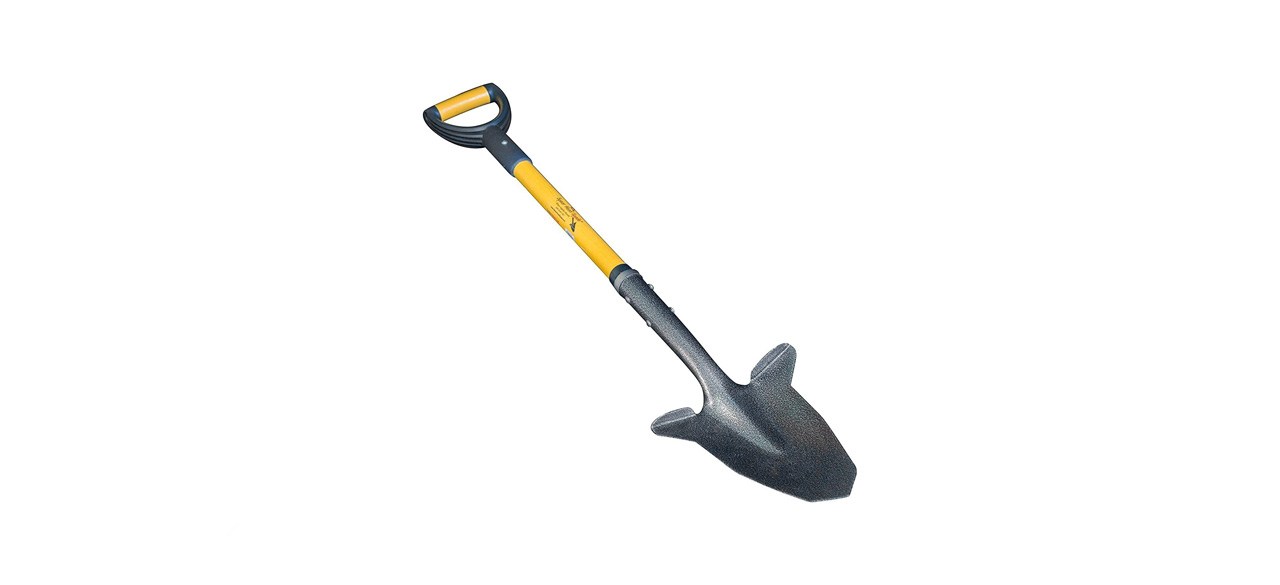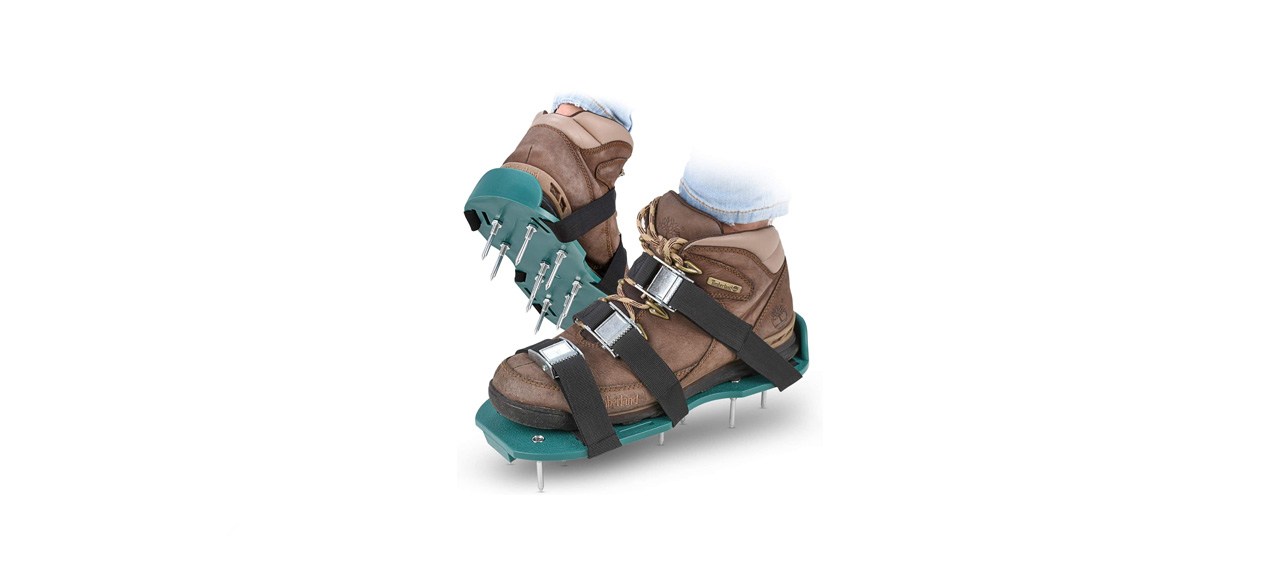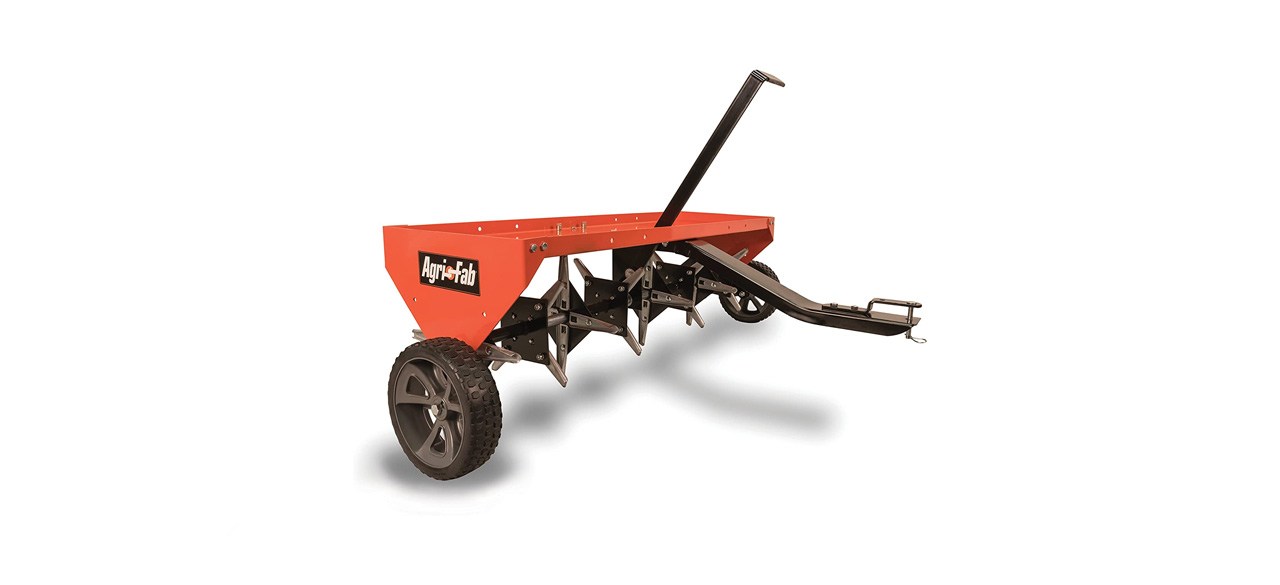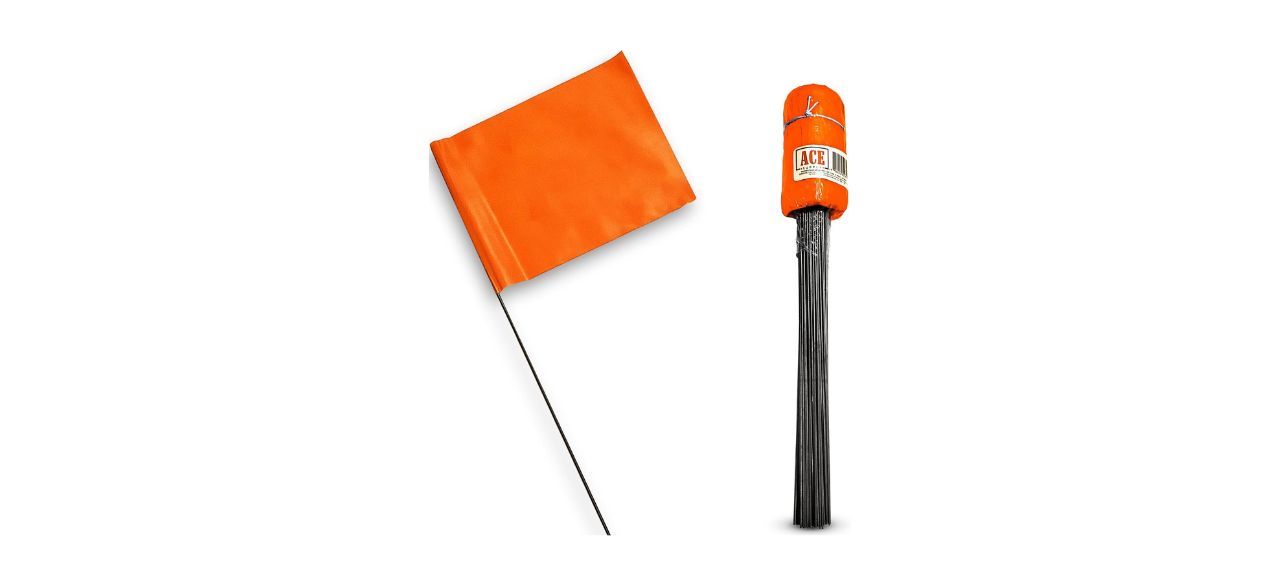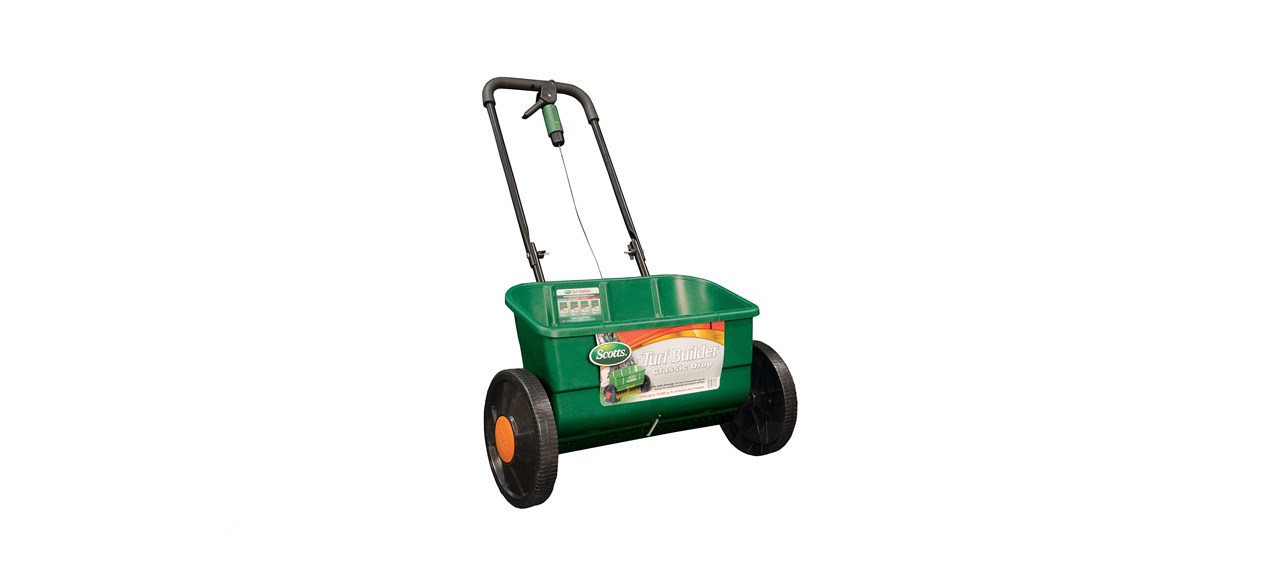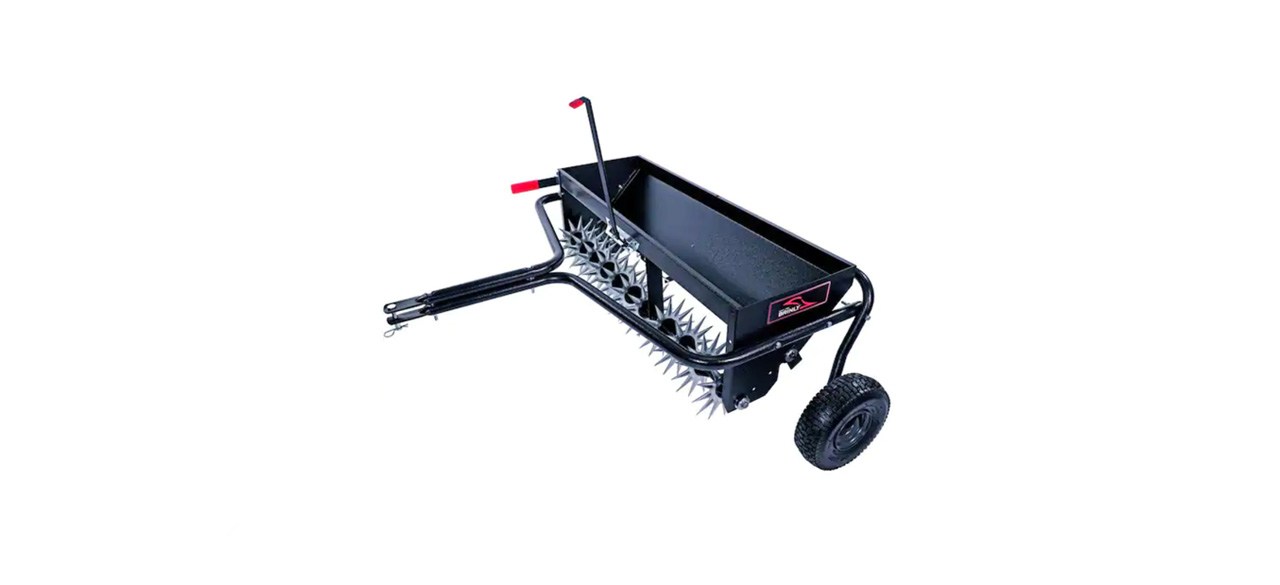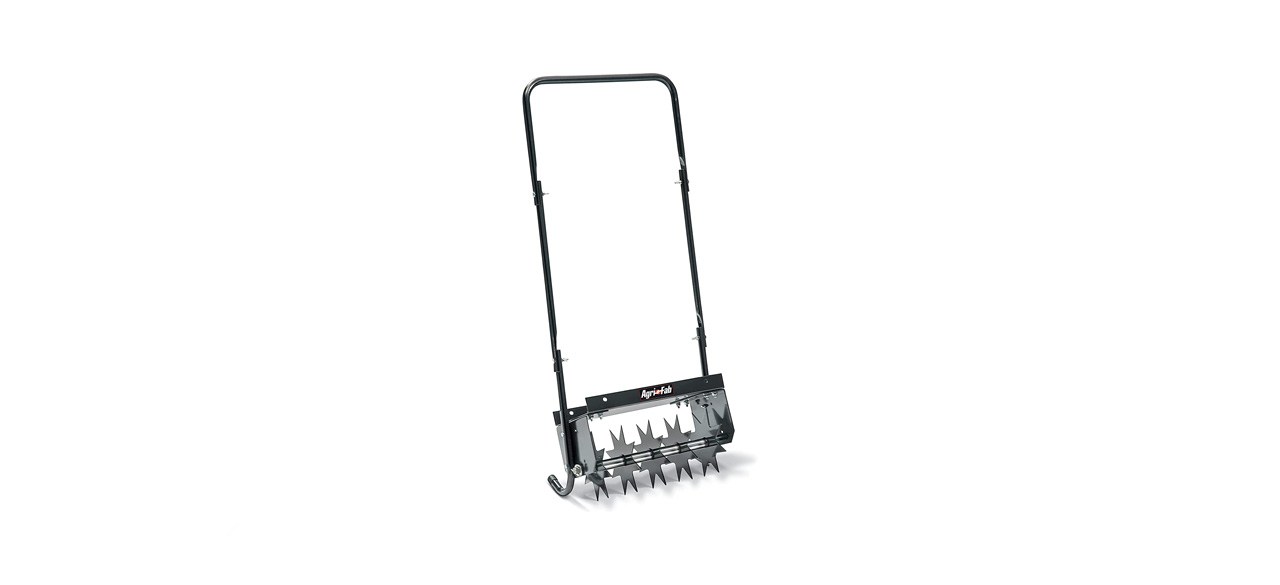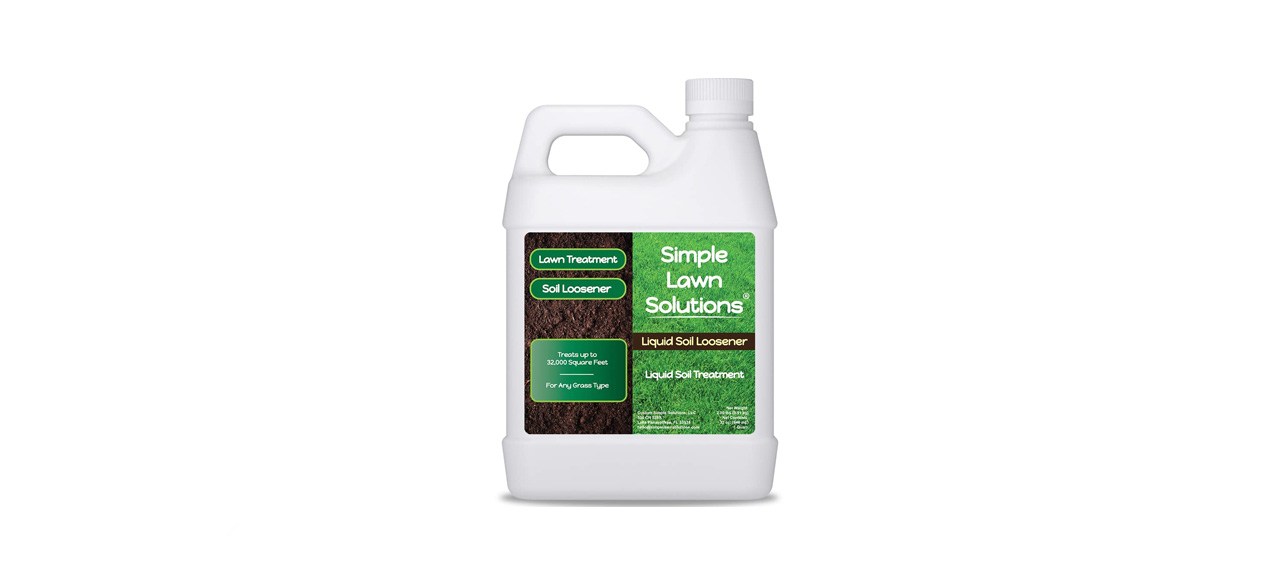When is the best time to aerate your lawn?
Anyone who owns a home knows a lush lawn doesn’t happen by accident. It takes a lot of planning and lawn maintenance to get a healthy lawn that’s the envy of all your neighbors. Regular watering, mowing and fertilizing are important, but they won’t do anything for you if your soil doesn’t provide the right growing conditions.
Over time, soil can become so compacted that it doesn’t let nutrients reach the roots, where they can do the most good. Lawn aeration is a simple process that solves this problem. To get the best results, though, it’s important to know when to aerate your lawn — otherwise, you may be doing more harm than good.
In this article: Abco Tech Lawn Aerator Shoes, Agri-Fab 45-0299 48-Inch Tow Plug Aerator and Scotts 76565 Turf Builder Classic Drop Spreader
The purpose of lawn aeration
Lawn aerating involves perforating your lawn with many small holes, breaking up heavily compacted soil so water, nutrients and oxygen can better reach the roots. This lawn care process improves grass’s drought tolerance, so it can handle harsh weather better. It also improves drainage and encourages faster better growth. The roots will grow deeper, letting them reach nutrients and water further down in the soil.
How often to aerate your lawn
You’ll be happy to know you don’t need to aerate it frequently. How often depends on the type of soil you have and how much foot traffic it gets. If your soil has a high clay content or is highly trafficked, you should aerate it once a year. Most other lawns only need to be aerated every two to three years as long as they are growing well and look healthy.
Signs that your lawn needs aeration
There are several signs that may indicate your lawn needs aeration:
- It begins to turn brown after just a few days of hot weather.
- Water puddles on the surface after rain.
- The grass isn’t growing or is growing slowly.
- There are lots of bald or worn spots.
- The grass is noticeably thinning.
- There is a heavy buildup of thatch.
If you are still unsure if your lawn needs aeration after seeing some of these signs, there are two tests you can perform. Try sticking a shovel into the soil. If it is difficult to penetrate, it is too heavily compacted. You can also dig into a section of your lawn and inspect the roots. If they don’t extend at least 2 inches, your soil likely needs aeration.
The best time to aerate your lawn
Though aeration helps your lawn, it also stresses it. To ensure it recovers quickly from any damage, only aerate it during its peak growing season. This varies based on the type of grass you have and your location. In cool climates and for cold-season grasses, early spring and early fall are good times. For hotter climates and warm-season grasses, late spring and early summer are best.
Aerating vs. dethatching
Aerating and dethatching are not words the average person uses in everyday conversation. Since they both benefit your lawn in nearly the exact same way, it is easy to confuse them. However, aerating and dethatching attack two completely different lawn problems.
Aerating: Aerating treats the soil. It should only be done when the soil has become so compacted that your lawn begins to suffer because it is not getting the air, water and nutrients it needs to thrive.
Dethatching: Dethatching treats the organic buildup that resides on the top of the soil. It should only be done when the thatch has become so thick that your lawn begins to suffer because it is not getting the air, water and nutrients it needs to thrive.
Types of lawn aerators
Lawn aerators come in two types: spike and plug.
- Spike aerators are less effective but tend to be more affordably priced. These lawn aeration devices make very small holes and don’t require any clean-up afterward.
- Plug aerators remove small, cylindrical chunks of soil. They leave these strewn all over the lawn, so you’ll need to mow over them or manually remove them later, but this is much more effective.
Tips for aerating a lawn
Aerating a lawn isn’t difficult, but there are a few tips to follow that can help you get the most from it.
- Moisture: Avoid aerating when it is overly dry. Instead, do it a day or two after it rains. If Mother Nature isn’t being accommodating, water the lawn thoroughly the day before you aerate.
- Obstacles: Before you start, flag sprinklers and any other obstacles in the grass to avoid accidentally damaging them.
- Repeat: During aeration, make several passes over the most heavily compacted areas to ensure through the perforation.
- New growth: When you have finished, fertilize your lawn and, if needed, spread grass seeds. Your soil will be the most receptive at this time.
FAQ
Q: What type of aerator is best for your lawn?
A. You must choose the aerator that best fits the size of your lawn. If you only have a small yard, you will not need a 48-inch tow-behind aerator. If you have a few acres, trying to accomplish the task with a manual lawn aerator will take far too long.
Q: Which aerator is better, a spike or plug aerator?
A. Both are effective. The one you use depends on the outcome you want and when you are aerating. A spike aerator is safer to use because it doesn’t have as great of an impact on the health of your lawn. If needed, you could aerate with a spike aerator after the peak growing season. A plug aerator, however, removes a section of the soil, which includes the roots of your grass. This can be very traumatic, so it should only be done during peak growing season.
Spike aerators accomplish the job and are more affordable. The benefit of using a plug aerator is the treatment will last longer.
Q: Is it worth it to aerate your lawn?
A. Definitely. But only if your lawn needs it. Compacted soil means your grass cannot get air, water or nutrients. You might not notice much of a problem at first because the initial damage happens underground: the roots stop growing deep and begin growing up to get nourishment. Over time, you will notice patches of your lawn dying out. If you want to keep your grass healthy and your soil is compacted, aerating is a must.
Q: Why shouldn’t you aerate your lawn?
A. Aerating fixes problems with compacted soil. Nothing else. If you do not have compacted soil, at best, aerating your lawn will be a waste of time. At worst, it will cause more harm than good by creating drainage problems. When done properly, aeration should only be needed once each year at the most. After you have the problem under control, you may be able to go two or three years without aerating.
Q: Do you need to remove plugs from your lawn after you aerate it?
A. No. They will break down quickly and can help nourish your lawn.
Q: Why do I need a cinder block to aerate my lawn?
A. Adding cinder blocks to the tray on your aerator increases the machine’s weight. This ensures that the spikes or plugs penetrate the soil deep enough to be beneficial.
Q: What should I do after I aerate my lawn?
A. After aerating you can lightly fill the holes left by a plug aerator with sand or compost if desired. You can also overseed or add fertilizer to help strengthen your lawn, especially if it has bare or thin spots. The most important thing to do, however, is to keep the soil moist. This means being vigilant about watering for about two weeks. Just be careful not to over-water your lawn — you want moist soil, not a swamp.
What you need to buy for lawn aeration
If you have a small yard, these affordably priced lawn aerator shoes are a good choice. They strap securely into place via sturdy metal buckles, and each features 13 heavy-duty spikes that penetrate nearly 2 inches into the soil.
Agri-Fab 45-0299 48-Inch Tow Plug Aerator
For large yards, a tow-behind lawn plug aerator like this can help you get the job done as quickly as possible and with the least effort. This lawn aerator tool is equipped with 32 galvanized knives that penetrate soil easily and pull out plugs up to 3 inches in size.
Ace Supply Fluorescent Orange Marking Flags
These bright flags are easy to spot against green lawns and have strong spikes that rarely bend when you stick them in the ground. They come in a pack of 100, so you’ll have plenty, and they have a nice wallet-friendly price.
Scotts 76565 Turf Builder Classic Drop Spreader
Fertilizer needs to be applied evenly for the best results and a rolling drop spreader like this is the best way to do it. Its hopper can hold enough fertilizer or seeds to cover 10,000 square feet, and it spreads them in a 22-inch pattern to make short work of medium-sized yards.
Brinly-Hardy 40-Inch Tow-Behind Combination Aerator Spreader
You can save time with this two-in-one model because it has a built-in spreader that drops seeds or fertilizer as you aerate. The all-steel hopper holds 100 pounds of seed or fertilizer. When you need to cross a sidewalk, driveway or path, just use the lever to engage the transport wheels. The steel stars aerate your soil up to 2 inches deep, while the spreader has an adjustable stop to minimize waste.
The benefit of this manual aerator is it has a tray on top so you can add a cinder block to ensure ground penetration up to 2.5 inches deep. It is 16 inches wide, nimble and best for smaller lawns. This model also features a bar that allows you to hold the aerator using two hands for maximum control and comfort.
Simple Lawn Solutions Liquid Soil Loosener
An alternative to making holes in the soil is applying liquid lawn aerator. Just add the desired amount to your hose-end sprayer, turn on your hose and spray the area you want to be treated. This soil loosener is designed to facilitate the vertical movement of moisture through the soil. The 32-ounce bottle covers up to 32,000 square feet.
Prices listed reflect time and date of publication and are subject to change.
Check out our Daily Deals for the best products at the best prices and sign up here to receive the BestReviews weekly newsletter full of shopping inspo and sales.
Copyright 2024 BestReviews, a Nexstar company. All rights reserved.


